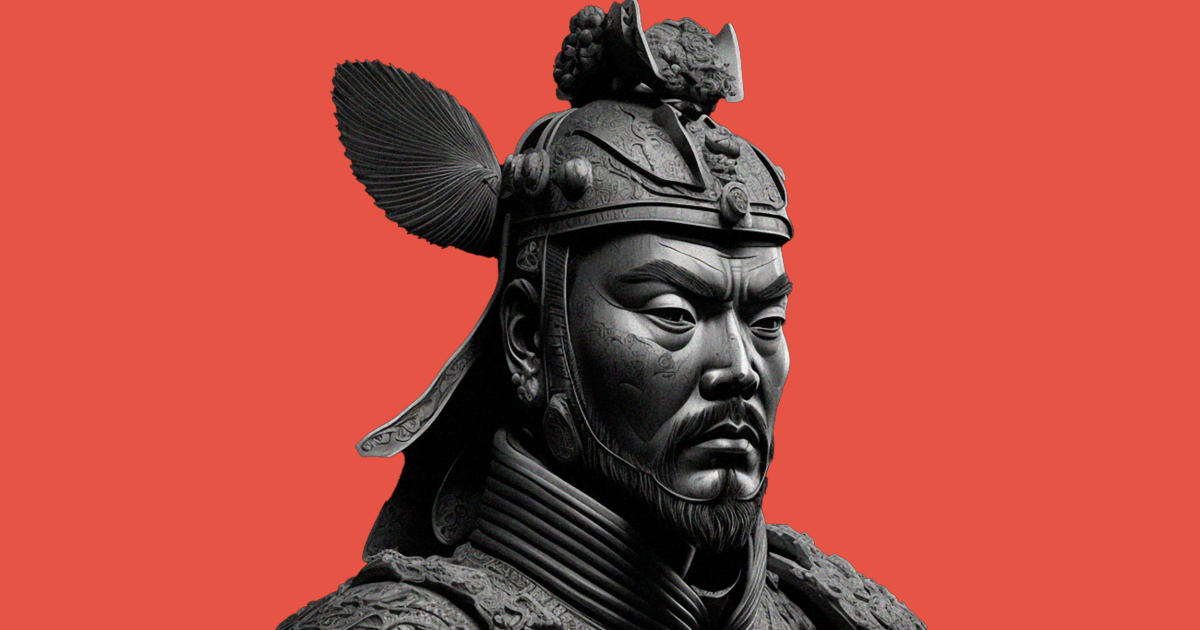
Sun Tzu, the renowned ancient Chinese military strategist, is widely regarded as one of the greatest military minds in history. His timeless work, “The Art of War,” is not only still studied by military leaders today, but also applied to various aspects of life, including business, leadership, and personal development.
In this article, we will delve into 14 fascinating facts about Sun Tzu that highlight his life, achievements, and contributions to military strategy. From his upbringing and military career to his philosophy on warfare and leadership, these facts will provide a deeper understanding of the man behind the legendary book.
So, whether you’re an admirer of Sun Tzu or simply curious about the origins of “The Art of War,” join us as we explore the intriguing and captivating world of this remarkable strategist.
Key Takeaways:
- Sun Tzu’s “The Art of War” offers timeless strategies for success in military, business, and personal life, emphasizing the importance of self-awareness, strategic planning, and adaptability.
- Sun Tzu’s teachings promote the idea of resolving conflicts through non-violent means when possible, emphasizing the significance of understanding human nature and the importance of strong leadership for achieving victory.
Sun Tzu is the author of “The Art of War”.
Known as one of the most influential military strategists in history, Sun Tzu wrote the famous book “The Art of War“, which provides valuable insights into tactics, leadership, and winning strategies.
His exact birth and death dates remain a mystery.
Despite his prominence, little is known about Sun Tzu’s personal life, including his precise dates of birth and death. He is thought to have lived during the Spring and Autumn period of ancient China.
“The Art of War” consists of 13 chapters.
Sun Tzu’s book is divided into 13 chapters, each focusing on different aspects of warfare, including tactics, planning, and the importance of understanding the enemy.
It has had a significant influence on military strategy throughout history.
The Art of War” has been studied and applied by military leaders throughout history, including figures such as Napoleon Bonaparte and General Douglas MacArthur, due to its timeless principles and strategies.
Sun Tzu emphasizes the importance of knowing oneself and the enemy.
In “The Art of War,” Sun Tzu stresses the significance of self-awareness and understanding the strengths and weaknesses of both one’s own forces and the opposing side. This knowledge is essential for achieving victory.
He advocates for strategic deception and the element of surprise.
Sun Tzu believed that deception and surprise were key components of successful warfare. By strategically misleading the enemy and catching them off guard, one could gain a significant advantage.
Sun Tzu’s teachings extend beyond the military realm.
The principles outlined in “The Art of War” are not limited to military strategy. They can be applied to various aspects of life, including business, politics, and personal relationships, emphasizing the importance of strategic thinking and planning.
His teachings promote the idea of resolving conflict through non-violent means when possible.
Contrary to popular belief, Sun Tzu believed in avoiding unnecessary conflict and emphasized finding peaceful resolutions whenever feasible. He believed that winning without fighting was the ultimate victory.
Sun Tzu’s philosophies align with the concept of understanding human nature.
Central to “The Art of War” is the understanding of human nature and how it can be leveraged to gain an advantage. Sun Tzu believed that understanding people’s motivations and behaviors was crucial in the art of strategy.
His book emphasizes the importance of proper preparation and planning.
Sun Tzu repeatedly stresses the significance of thorough preparation and planning as fundamental prerequisites for victory. He believes that proper groundwork leads to successful outcomes.
Sun Tzu believes in adaptability and flexibility in the face of changing circumstances.
“The Art of War” highlights the importance of being adaptable to changing situations and being able to adjust tactics and strategies accordingly. Sun Tzu advises against rigidity and encourages the ability to think on one’s feet.
He emphasizes the role of leadership in the success of an army.
In his book, Sun Tzu underscores the importance of strong leadership in achieving victory. He states that a competent and respected leader is essential for motivating and guiding troops effectively.
Sun Tzu’s teachings focus on winning battles without extended conflict.
Unlike some military strategies that prioritize prolonged engagement, Sun Tzu advocated for swift and efficient victories. He believed that protracted battles were both costly and detrimental to long-term success.
The Art of War is still widely studied and used in modern times.
Even today, “The Art of War” remains a popular and relevant resource for military leaders, business executives, and individuals seeking strategies for success. Its enduring wisdom continues to be applied across various fields.
Conclusion
Through exploring these 14 fascinating facts about Sun Tzu, we gain a deeper understanding of this influential ancient Chinese military strategist. Sun Tzu’s teachings continue to resonate today, not only in the realm of warfare but also in various aspects of life, business, and strategy. His timeless wisdom and principles emphasize the importance of careful planning, flexibility, and understanding one’s enemy.
By studying Sun Tzu’s “The Art of War,” we can acquire valuable insights into leadership, decision-making, and conflict resolution. Sun Tzu’s ability to analyze situations, adapt strategies, and leverage psychological warfare highlights his mastery in the art of tactics and maneuvering.
Whether applied in military campaigns or in everyday life, Sun Tzu’s principles remind us of the need to be strategic, insightful, and adaptable. The legacy of Sun Tzu’s teachings continues to inspire and guide individuals and organizations in navigating the complexities of a changing world.
FAQs
Q: Who was Sun Tzu?
A: Sun Tzu was a renowned ancient Chinese military strategist, philosopher, and author of “The Art of War.”
Q: What is “The Art of War”?
A: “The Art of War” is a treatise on military strategy and tactics written by Sun Tzu. It is considered one of the most influential books on military strategy ever written.
Q: What are some key principles from “The Art of War”?
A: Some key principles from “The Art of War” include the importance of careful planning, understanding the enemy, flexibility in tactics, and leveraging psychological warfare.
Q: How can Sun Tzu’s teachings be applied outside of warfare?
A: Sun Tzu’s teachings can be applied to various aspects of life, such as business, leadership, and personal development. His principles emphasize the importance of strategic thinking, adaptability, and understanding human behavior.
Q: What is the significance of Sun Tzu’s teachings today?
A: Sun Tzu’s teachings are still relevant today because they provide insights into effective decision-making, leadership, and conflict resolution. His principles can be applied to navigating the complexities of modern life and business.
Sun Tzu's legacy extends far beyond his military genius. Curious about the iconic statue that pays homage to this legendary strategist? Fascinated by the enigmatic depths of his seminal work, "Art Of War - Sun Tzu"? Perhaps you'd like to explore other historical figures who rank among the strongest and greatest warriors in history, like Hannibal Barca. Each topic offers a unique perspective on the enduring impact of Sun Tzu and other military masterminds throughout history. Embark on a journey of discovery as you unravel the mysteries surrounding these captivating subjects.
Was this page helpful?
Our commitment to delivering trustworthy and engaging content is at the heart of what we do. Each fact on our site is contributed by real users like you, bringing a wealth of diverse insights and information. To ensure the highest standards of accuracy and reliability, our dedicated editors meticulously review each submission. This process guarantees that the facts we share are not only fascinating but also credible. Trust in our commitment to quality and authenticity as you explore and learn with us.


